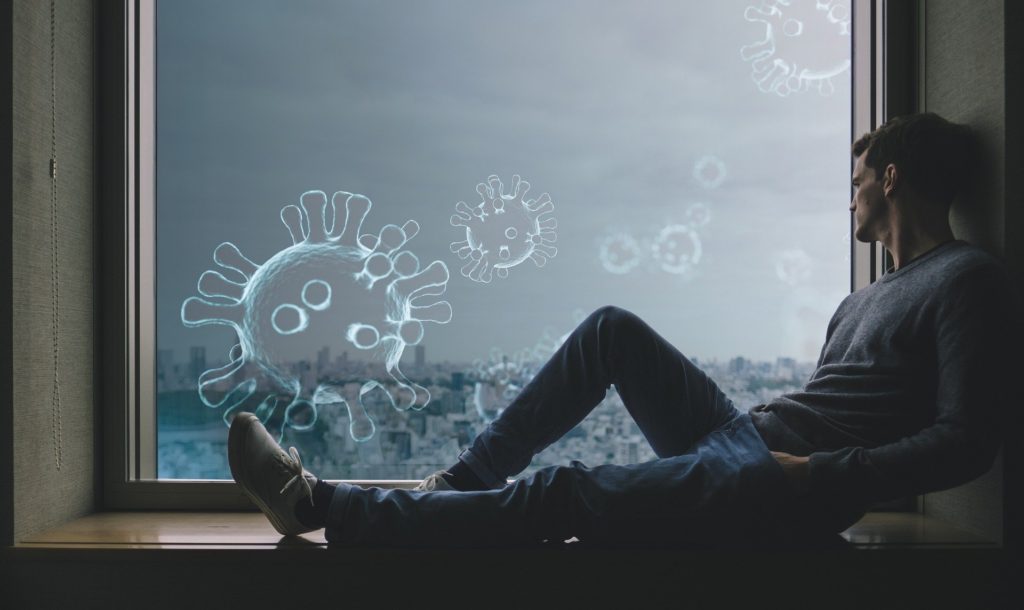“I don’t think we should ever have to shake hands ever again,” Dr. Anthony Fauci, Director of the National Institute of Allergy and Infectious Diseases (NIAID), said in a Wall Street Journal podcast recently. Fauci is optimistic that life in the United States will eventually return to the way it was once a vaccine is found. But there are some things that he believes should, and will, change after this unprecedented time in social isolation.

At the University of California Institute for Prediction Technology (UCIPT) we are carefully monitoring digital developments throughout this pandemic, and we believe there have been seismic and transformational shifts in the digital tools that are being used in society.
We are seeing rapid adoption of technology and telehealth practices within medicine, on both the provider and patient side, due to social distancing requirements. Whether they believe they have COVID-19 or not, people no longer need to attend a doctor’s office to receive medical advice from a physician. Instead, it is now just a phone call away. And embracing remote technology doesn’t stop at the physician’s office. Many Americans are using Facetime to communicate with their loved ones, including an older generation who are using it for the first time to connect with their grandchildren. Families under quarantine are using websites and apps to order groceries and food to be delivered to their homes too.
Parents are spending hours each day homeschooling their children using Zoom and other digital tools. College students are using virtual learning environments to interact with their professors and communicate ‘face-to-face.’ Professors who have never taught online are using learning management systems (LMS) to deliver classes in an online format. This rapid adoption of e-learning is further powered by the need to make courses engaging in this time of crisis, to hold the attention of students, and have them interested in logging in and participating online. Never before have we seen such a singular focus directed at developing proficiency in digital learning, and it will accelerate the e-learning arena for decades to come.
Another development that will change our daily lives forever, is forehead temperature checks. The Florida county that is home to the Disney World, Universal, and SeaWorld Orlando theme parks announced that temperature checks for staff members at all parks are now mandatory. Any employee with a temperature above 100.4 will not be permitted to go to work. Walmart and Amazon are also keeping an eye on the temperature of employees to test for fever, a common symptom of Coronavirus.
It is not just employees that are having their body temperatures monitored. Thermal cameras and even surveillance augmented reality glasses have become commonplace in airports, public transit, building lobbies, and shopping malls in China. An elevated temperature means that person is not permitted entry, and in some cases, can be reported to authorities. We are already seeing this technology start to be implemented in the U.S. This raises the issue of privacy and how much personal data organizations, and potentially the government, has the right to have from someone requesting to enter a private or public space. The CEO of a Bay Area facial recognition and thermal camera company gave the Washington Post a forthright answer to that question this week: “I do not believe body temperature is a piece of private information anymore.”
Ethics aside, the temperature test for COVID-19 is far from infallible anyway. Tylenol is designed to bring temperature down, allowing a person with a fever – and potential coronavirus infection — to slip under the radar. Further, asymptomatic COVID-19 patients may not have an elevated temperature or a fever at all. Still, proponents of the measure, including the NIAID, recommend forehead temperature tests. Dr. Fauci notes he has his temperature taken 8 or 9 times each day when he is in the White House and in close proximity to the President and has accepted it as a necessary safety measure in a pandemic.

We are all being forced to rethink the norms that have been a part of our daily lives, and to adjust to our new reality under COVID-19. Some changes are small, temporary tweaks, and some will have a profound and lasting impact. COVID-19 will cease to be a pandemic once a vaccine is developed, yet some of the norms that have been developed throughout the intervening period will stay with us for a long time to come. If Dr. Fauci gets his wish, one of the things that gets left behind will be the ancient Greek custom of shaking hands, initially implemented to show a person you are meeting that you are not carrying a sword. Some norms, it seems, have lasted beyond their usefulness, and it may be time to embrace a new, public-health conscious normal.
